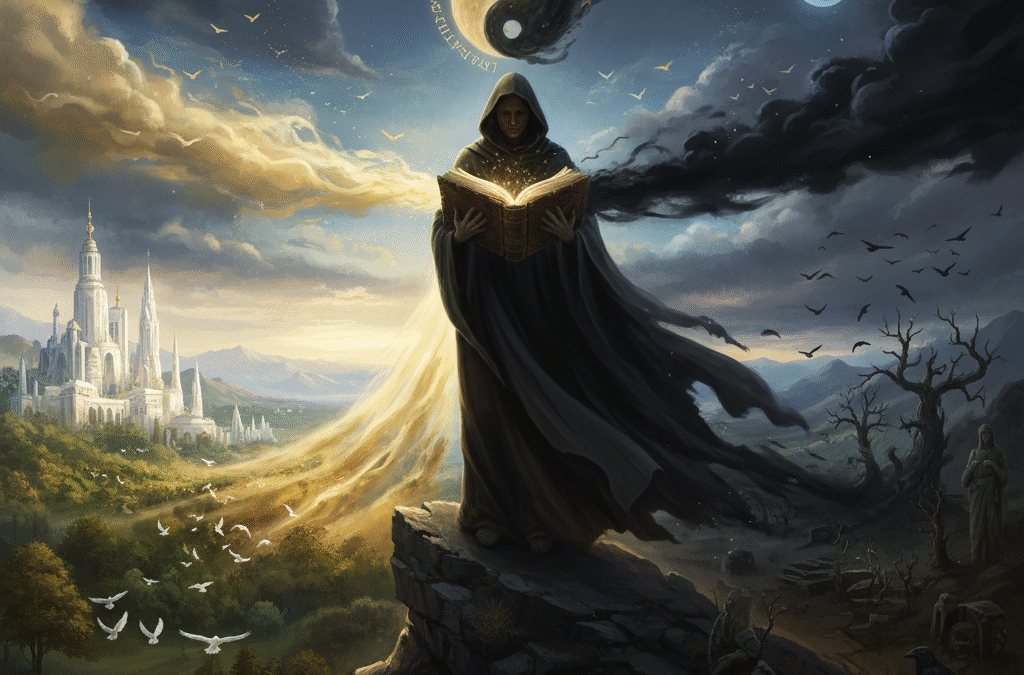Knowledge has always been mankind’s ultimate goal. From the earliest cave drawings to modern scientific advances, our species has been spurred on by curiosity, the persistent desire to understand the world around us. But with curiosity also comes a tough question: is everything worth knowing, even if it kills us? Or are there some things that must forever be left unknown?
At first glance, it would seem easy that knowledge is a good thing. It cures illnesses, builds civilizations, and helps us discover the universe’s secrets. Humankind would still be stumbling in the dark without knowledge. The Enlightenment thinkers crowned knowledge as a beam of light that drives away the darkness. History also teaches us that pursuit of knowledge can be disastrous. Nuclear fission gave us clean energy but nuclear weapons to destroy cities, too. The same desire that has driven us to medical breakthroughs has been equally directed toward immoral experiments. Knowledge itself is neither good nor bad, but the uses we put it to are.
Philosophers will argue that knowledge is worth it in and of itself, or that it has merit depending on context. Others feel that all knowledge should be pursued for its own value. From this viewpoint, withholding the pursuit of truth is a betrayal of our humanity. To draw boundaries to knowledge may appear to draw boundaries to freedom itself. Who, by the way, determines what is “too dangerous” to be known? Censorship, even well-intentioned censorship, has dangers of control and manipulation.
Others, however, insist that an unfettered search for knowledge can be irresponsible. Consider: a scientist who learns how to engineer viruses much deadlier than any that occur naturally. Should such a finding be celebrated just because it enlarges our knowledge? Or should it be withheld on the grounds of its lethal potential if misused? In all such instances, the ethics of knowledge is pitted against the ethics of responsibility. It is no longer a matter of what we can know but of whether we ought to know anything.
This battle has been investigated in fiction for thousands of years. In Greek mythology, Prometheus steals fire from the gods and presents it to man, a gift of knowledge and power. He is sentenced to be punished eternally for the act. In the biblical story, Adam and Eve eat from the Tree of Knowledge and are expelled from Eden. Both myths reference some fundamental insight that knowledge can be double-edged—liberating but dangerous, empowering but also destructive of innocence.
Modern science and philosophy ask the same question. Computer science gives us, for example, a challenge to autonomy, privacy, and even to the definition of humanness. Genetic engineering offers us the hope of eliminating disease but opens before us the ethical danger of “designing” human beings. For both, the issue is less “Can we?” than “Should we?” Knowledge untutored by wisdom, history teaches, can be catastrophic.
Maybe balance is the answer. We need to search for knowledge without going blindly, without wanting to know what it might mean, but without cutting it off either because of fear. The point is in how we go about it. Knowledge and humility and responsibility and respect for what is right are a good thing. Knowledge that does not have any of those is bad. To know is to be human, but to use what we’ve learned wisely, that’s moral.
So, must everything be sought as knowledge? Perhaps more exactly, we should inquire how we guide our search. Knowledge is not information; it builds lives, societies, and futures. It is powerful, and with power comes responsibility. To seek knowledge is to carry fire, to warm, to cure, to illuminate, and to burn everything that touches it.
